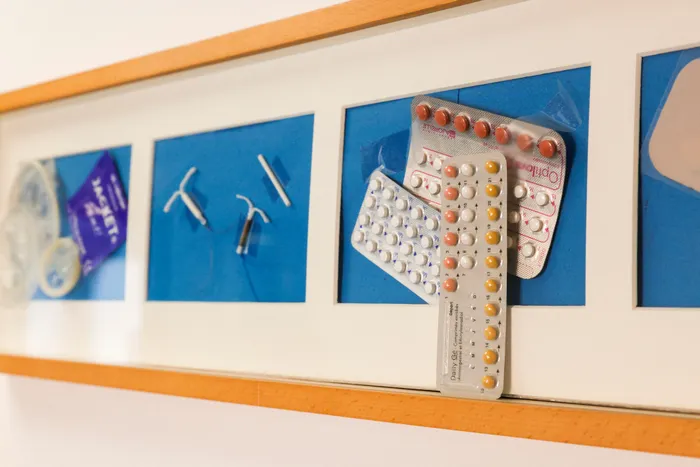The unmet need for contraceptives in Africa and why it needs to be addressed

Picture: Geoffroy Van der Hasselt/AFP - While there are many contraception products available across the world, access to any or all of them might prove difficult for women in some countries, says the writer.
By Kelly-Jane Turner
Contraception is highly cost-effective and has shown to have far-reaching benefits. However, evidence from sub-Saharan Africa indicates that a lack of knowledge or misinformation is a barrier to its use.
While there are many contraception products available across the world, access to any or all of them might prove difficult for women in some countries.
In a recent report by the Stop Stockouts Project, a consortium of six civil society organisations focused on addressing shortages of essential medicines, contraceptives represent the biggest share of medicine stockouts in the South African public health system.
The survey was conducted in April 2022 and included responses from more than 15 000 public health-care users and public health-care providers of more than 400 facilities.
Injectable contraceptives and oral birth control pills were most commonly out of stock, at 76% and 19%, respectively.
SECTION27 legal researcher, Baone Twala said the Department of Health should urgently address the issues related to access.
“Failure to prioritise access to contraceptives for all who wish to access them is a failure by the government to prioritise the lives of women and girls across the country.
“Women and girls are bearing the burden of the unavailability of contraceptives in South Africa, despite a clear constitutional right to access to health-care services, including reproductive health-care services,” said Twala.
The impacts of contraceptive stockouts could lead to unwanted pregnancies, which could negatively impact women and girls’ physical and mental health, and financial security.
Lucy O’Connell, a nurse and adviser at the Southern Africa Medical Unit of Doctors without Borders, said: “Women who take contraception have made a choice not to get pregnant. When supplies are not there, we take away their agency.”
In a recently published academic article, authors found that health service availability influenced contraceptive use, with the greatest negative impact in the global south.
With lead author, Preethy D’Souza, from the Department of Social Science at the University College London, the study identified several barriers to contraception use.
The authors of the study based their findings on 24 systematic reviews from studies conducted globally between 2000 and 2019.
Insufficient or inaccurate knowledge and concerns about side effects were some of the more prevalent barriers to contraception use.
“Women worldwide lack sufficient knowledge, capability and opportunity to make reproductive choices, and health-care systems often fail to provide access and informed choice,” the authors said.
In sub-Saharan Africa, distance to family planning clinics, method choices available, poor health infrastructure, and unfriendly attitudes of health providers have been factors that impact women’s access and perception of contraceptives.
Concerns about side effects of contraceptives, including menstrual disruption, fears concerning fertility and cancer and weight gain have also deterred women in the global south from using contraception.
The study found that social networks in some African countries play an important role in attitudes towards contraceptives.
“In Ghana, encouragement towards contraceptive use from men’s social networks positively influenced contraceptive uptake by their wives. In Ethiopia, support for contraceptive use in women’s social networks were largely independent of men’s social network support.”
The Guttmacher Institute, a leading research and policy organisation committed to advancing sexual and reproductive health and rights, estimates that 43% of pregnancies in the global south is unintended, and 84% of those occur in women with an unmet need for reliable contraception.
“Unintended pregnancies, unsafe abortions and maternal deaths would drop by about two-thirds if all women in low- and middle-income countries wanting to avoid pregnancy were to use modern contraceptives and all pregnant women were to receive care that meets international standards,” said the institute.
A study the African Population and Health Research Center conducted found a high level of unintended pregnancy among sexually active adolescent girls in Kenya, partly due to the girls being naive about relationships and contraceptives.
The study involved more than 1 800 girls aged from 15 to 19 years.
“Our study shows that sexually active adolescent girls who had never used any contraceptive method were almost twice as likely to experience an unintended pregnancy than those who had ever used any contraceptive methods,” said researchers.
In order to address the issue of unintended pregnancy and unsafe abortion in Kenya, the authors suggested the need to prioritise comprehensive sex education.
The authors said adolescent girls in sub-Saharan Africa were particularly susceptible to unintended pregnancy due to a number of factors which include poverty, gender inequality, lack of access to sex education, sexual violence, and national policies restricting access to contraception.
Social structures, cultural norms and values about sex also impacted contraception use in the country.
“Adolescents in low- or middle-income countries sometimes avoided contraception because they needed to prove to their partners and their communities that they were fertile, particularly if they were recently married.”
Kelly-Jane Turner is a multimedia journalist.
Facebook: Kelly-Jane Turner;
Twitter: @KellyJane_T
This article is original to the The African. To republish, see terms and conditions.